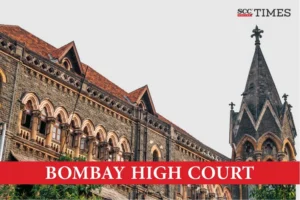Bombay High Court: An appeal filed under Section 260-A of the Income Tax Act, 1961, (‘the Act’) impugned an order passed by the Income Tax Appellate Tribunal, Mumbai (ITAT), wherein the decision of the Commissioner of Income Tax (Appeals), Bombay [CIT(A)], to allow the appeal of the assessee and deletion of disallowance of interest expenditure amounting to Rs. 94,00,00,000/- claimed by the assessee was upheld by the ITAT, the division bench comprising K.R. Shriram and Neela Gokhale, JJ. while dismissing the appeal, held that the Assessing Officer should have given cogent reasons if he wished to record dissatisfaction regarding the claim of the assessee.
In the matter at hand, the assessee had filed the Return of Income (ROI) for Assessment Year (AY) 2008-09 on 30-09-2008, declaring Nil income with a loss of Rs. 6,76,80,285/-. Upon scrutiny, the Assessing Officer (AO) noted that the assessee had received a dividend of Rs.2.14 crores from long-term investment, Rs.9.85 crores from mutual funds and Rs.2065 Lakhs under the head ‘Capital Gains’. The AO also observed that Assessee had claimed the above dividends aggregating to Rs.11,98,44,042/- as exempt under Section 10(34) of the Act besides Rs.12,15,13,871/- as exempt out of the capital gains under Section 10(38) of the Act. It was also noticed by the AO that the assessee had claimed an expenditure of Rs. 94,00,00,000/- on account of interest expenses.
Subsequently, the assessee was called upon to show cause as to why the expenditure should not be disallowed under Section 14-A of the Act, read with Rule 8D of the Income Tax Rules. Assessee’s reply was not accepted by the AO, and the disallowance was recomputed by applying Rule 8D at Rs. 18,46,00,000/-.
The Assessee filed an appeal before the CIT(A), which was allowed on the basis that the AO had not recorded his findings about the correctness of the assessee’s claim and that Rule 8D is not automatic, which is why reasons should have been provided for the disallowance. Being aggrieved by the decision, the respondent filed an appeal before the ITAT, which also concurred with the opinion of the CIT(A) while relying upon Sesa Goa Ltd. v. JCIT1.
In the present appeal, two substantial questions of law are proposed:
Whether on the facts of the case, the ITAT was right in deleting the disallowance by relying on Sesa Goa Ltd. v. JCIT, when the said decision is distinguishable on facts, and
Whether on the facts of the case, the ITAT was right in deleting the disallowance by holding that the Assessing Officer applied Rule 8D without recording satisfaction with reference to the correctness of the claim of assessee, when the Assessing Officer’s satisfaction is discernible from the discussion made in the assessment order.
While agreeing with the findings of the CIT(A) and the ITAT, the Court stated that the most fundamental requirement of Sub-section 2 of Section 14-A and Rule 8D is that the AO should record his dissatisfaction with the correctness of the claim of assessee in respect of the expenditure and to arrive at such dissatisfaction, he should give cogent reasons. The Court quoted its judgement given in CIT v. JSW Energy Ltd., 2023 SCC OnLine Bom 2846, to support this view. It was held by the Court that in view of the present circumstances, no substantial question of law arose, and the appeal was dismissed.
[Principal Commissioner of Income Tax v. Tata Capital Ltd, 2024 SCC OnLine Bom 1039, Order dated 03-04-2023]
Advocates who appeared in this case :
For Appellant — Advocate Suresh Kumar
For Respondent — Senior Advocate J.D. Mistri; Advocate Paras Savla; Advocate Pratik Poddar
1. 2013-I.T.A. No. 72 and 85/PNJ/2012.

